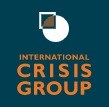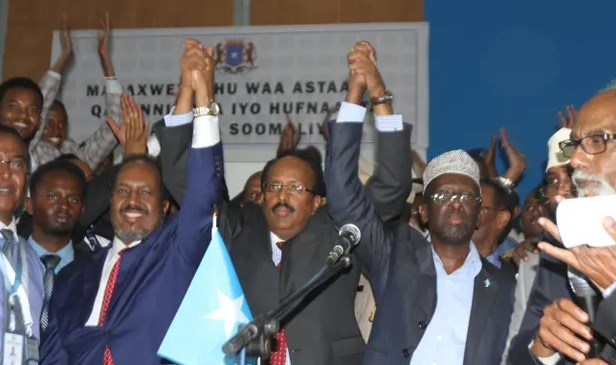
Wednesday September 15, 2021

After bubbling for weeks, tensions between Somali Prime Minister Mohamed Hussein Roble and President Mohammed Abdullahi Mohamed “Farmajo” have burst into the open, nearly triggering another clash between rival branches of the federal forces, in scenes that echoed confrontations in Mogadishu several months ago.
Following the unexplained murder of a national intelligence agent and Roble’s subsequent suspension of the National Intelligence and Security Agency (NISA) chief, both the prime minister and president moved to appoint a new agency leader.
The ensuing tensions nearly sparked a firefight, with opposing units facing off at NISA headquarters on 8 September. Although the forces in Farmajo’s camp backed down, the underlying frictions could yet cause violence and threaten long-overdue indirect elections.
Somalia’s factions are playing with fire. All sides need to de-escalate. International partners should publicly name spoilers, threaten sanctions if they do not change course and prepare targeted measures against those who continue destabilising behaviour.
Once warm, relations between Roble and Farmajo have been cooling since Farmajo tasked the prime minister with spearheading election preparations in May.
He did so after April’s clashes in the capital Mogadishu, when security units allied with opposition figures such as former Presidents Hassan Sheikh Mohamud and Sheikh Sharif Ahmed battled those supporting Farmajo.
The president had provoked an uproar when his allies in the lower house of parliament extended his term in office for a period of two years amid a stalled electoral process marked by political infighting. Following the clashes, Farmajo committed to expediting elections and to handing over electoral and security responsibilities to Roble, though he has, in effect, remained president past his term’s expiration in February 2021.
Yet now the separate dispute over NISA has shed further light on the extent to which the president and prime minister are at loggerheads. As things stand, their supporters could take up arms at any time, further complicating Somalia’s electoral saga.
A case involving the death of a national intelligence officer is the latest example of the rift.
This officer had apparently been poised to blow the whistle on the controversial deployment of Somali troops – perhaps thousands of them – for training in Eritrea since 2019. Somalia’s federal government has provided little information about this arrangement. Most of the soldiers have not returned to Somalia, leading their families to demand answers regarding their status.
There have been claims, but no concrete proof, that the troops had been deployed to the front lines in Ethiopia’s war in Tigray, where the Eritrean army is backing Ethiopian federal troops. The issue has become a political hot potato for the Farmajo administration. Although Somali troops have trained abroad, including in Turkey, in the past, recruitment for the Eritrea training was cloaked in secrecy. Family members have not heard from the recruits since they left for Eritrea. The families have held several demonstrations demanding more information on the training program
On 3 September, NISA said its agent, Ikran Tahliil, who had been missing since 26 June and was widely believed to have information about the training program from her time at NISA, had been abducted and killed by Al-Shabaab, the Islamist militant group fighting the federal government. Her disappearance triggered widespread public criticism of the agency and its head Fahad Yasin, who is close to Farmajo and a key figure in the president’s re-election bid. Ikran’s family have called for an investigation into her disappearance and submitted a lawsuit to the Armed Forces Attorney General’s Office implicating Fahad, among others, in her disappearance.
Several factors aroused the family’s suspicions. First, hours after NISA issued its statement saying militants had killed Ikran, Al-Shabaab denied it. Roble, who had already appointed a committee in June to look into the whereabouts of those sent to the Eritrean training program, then immediately demanded that the agency provide a full explanation of Ikran’s disappearance within 48 hours. That set in motion a chain of events that nearly ended in a military showdown between NISA units loyal to Fahad and those recognising the prime minister’s authority.
In a clear rebuke of the prime minister’s demand, Fahad said he would not respond to Roble but would instead supply any information to the National Security Council, a body consisting of the prime minister but also other leaders, and which has not met since 2018. On 6 September, however, Roble suspended Fahad as NISA chief, appointing General Bashir Mohamed Jama “Gobe” as interim director. He also ordered the armed forces attorney general to launch an enquiry into the case. Farmajo quickly came to Fahad’s defence. He declared Roble’s move unconstitutional, insisted that Fahad remain in his position and called upon the prime minister to focus solely on electoral matters instead. Farmajo’s supporters argue that NISA is a military institution within his remit as commander-in-chief. Roble’s side, however, asserts that it falls under the ministry of internal security, and that since Roble serves as the head of the Council of Ministers, he controls it.
Immediate mediation efforts proved futile. Deputy Lower House Speaker Abdiweli Ibrahim Mudey, who hails from the same sub-clan as Fahad, stepped in to broker a compromise on 7 September but failed to ease tensions between the parties. According to insiders, at first Farmajo accepted Fahad’s removal at the 7 September meeting and even met Gobe. But he outlined conditions for backing down publicly that Roble could not accept, including dropping the investigation into Ikran’s disappearance. With talks flailing, Farmajo began appointing his allies to security positions. He moved Fahad to the post of national security adviser. He also designated Fahad’s inexperienced confidant Yasin Abdullahi Farey, who previously ran Godka Jilicow – NISA’s custody and investigation centre – as his new interim NISA director, thereby directly challenging Roble’s appointment of Gobe.
A military standoff quickly developed. On the morning of 8 September, Farmajo’s appointee Farey took control of NISA’s headquarters in the Haber Khadiijo area of Mogadishu in an attempt to stop Roble from physically installing his appointee. Tensions rose as NISA’s various security units faced off – the Dufaan, comprised mainly of Al-Shabaab defectors and loyal to Fahad, were ranged against the U.S.-trained Waran and Gaashaan units. A member of the Gaashaan explained to Crisis Group that they were not backing the prime minister personally, but that they recognised his authority since the May 2020 agreement between political actors placed him in charge of security during the electoral period. Violence was averted, fortunately, as the outnumbered Dufaan stood down. Late on 8 September, however, Roble replaced the internal security minister, who on paper oversees NISA and was close to Farmajo, with his own political ally, signalling further jockeying for control of the institution.
The latest crisis illustrates how fragile the situation is in Somalia. The events at NISA show that the arrangement struck between Farmajo and Roble following the April clashes is fraying and that the parties are as far apart as ever. One Roble ally described the relationship to Crisis Group as “beyond repair”. Another mediation effort, led by the heads of Galmudug and South West regional states and culminating in a face-to-face meeting between Roble and Farmajo on 11 September, has also collapsed without an agreement. The risks are high that the country will descend into violence as the two leaders continue efforts to undermine each other. Already, both sides have reportedly reached out to security actors in Mogadishu to gauge – or lobby for – support in anticipation of a showdown.
The next moves from either side risk inflaming things further. Some are concerned that the president may ask his ally, Lower House Speaker Mohamed Mursal Abdirhaman, to call for a vote on a motion to dismiss Roble. Any move to remove Roble would be highly contentious, given his central role in electoral preparations. Some argue that such a move would also be of dubious legality given that parliament’s mandate expired in December 2020. In addition, new lower house representatives have yet to be elected, even as some newly selected senators have taken their seats. Roble has meanwhile sought to shore up his position by asserting control of government finances, declaring that no funds can be withdrawn from Somalia’s central bank without his approval – a move bound to upset Farmajo’s side.
Both sides need to take a step back from the brink. Rather than constantly finding new issues over which to duel, they should instead focus on bringing the long-overdue elections to completion. President Farmajo and his allies should avoid any effort to oust the prime minister so as not to derail election preparations. Other political actors, including opposition members, despite their initial scepticism, have increasingly shown trust in Roble’s stewardship of the preparations. Getting rid of Roble would refresh their doubts and likely ruin the deal on which the elections are based. The president should stick to his prior commitment to respect in word and deed the prime minister’s authority in handling logistics and security going into the vote. In that vein, Farmajo should accept the prime minister’s appointee to run NISA and cease seeking to counter his every move. Roble, in turn, can refocus on pushing ahead with the slowly progressing election cycle as his main priority. Both camps should also avoid attempts to interfere with or manipulate the vote, including by using government levers for political purposes.
Given the breakdown in ties between the president and prime minister and the failed mediations, further domestic talks are unlikely to produce lasting results. Rather, Somalia’s international partners should weigh in publicly and strongly to push for the above measures and be prepared to deploy measures of their own to discourage destabilising actions. International partners should be ready to name those acting as spoilers, threaten sanctions if they do not change tack and prepare targeted measures, potentially including travel restrictions or asset freezes, against those who persist with actions that undermine Somalia’s stability and the prospects of getting to a quick election. The U.S., UK and European Union in particular should lead on this matter, given their significant support for Somalia’s government. Much of Somalia’s political elite retain dual citizenship, and bilateral measures that restrict their travel or financial freedom, including after their time in office, impose a clear cost that can serve as an effective deterrent.
As regards Ikran’s disappearance, the investigation led by the armed forces attorney general must continue unimpeded. The office should make its findings public, and hold accountable those responsible. Ikran’s family has already reportedly rejected diya (the Somali customary practice of paying compensation to a victim’s family to resolve charges of wrongdoing) in exchange for halting the investigation. They also opposed an investigatory committee belatedly named by Farmajo on 13 September. Their responses indicate that they will not accept alternative means of justice.
Somalia has remained in limbo long enough with a government that has overstayed its mandate but has yet to organise a new election. The tit-for-tat clashes between its two highest-ranking leaders risk upending the modicum of stability the country has enjoyed while distracting politicians from other priorities, including delivering services to Somalis. All domestic actors should de-escalate to prevent the Farmajo-Roble rift from widening. External partners should signal their willingness to use sanctions against those obstructing the path to an election that might allow the country to chart a way forward.